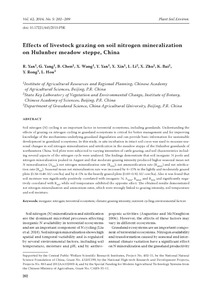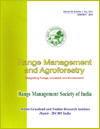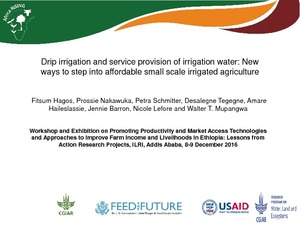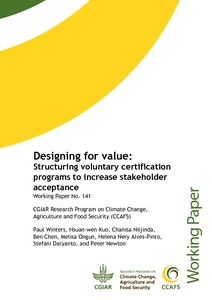Effects of livestock grazing on soil nitrogen mineralization on Hulunber meadow steppe, China
Soil nitrogen (N) cycling is an important factor in terrestrial ecosystems, including grasslands. Understanding the effects of grazing on nitrogen cycling in grassland ecosystems is critical for better management and for improving knowledge of the mechanisms underlying grassland degradation and can provide basic information for sustainable development in grassland ecosystems. In this study, in situ incubation in intact soil cores was used to measure seasonal changes in soil nitrogen mineralization and nitrification in the meadow steppe of the Hulunber grasslands of northeastern China.






